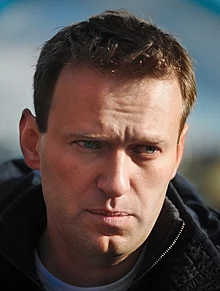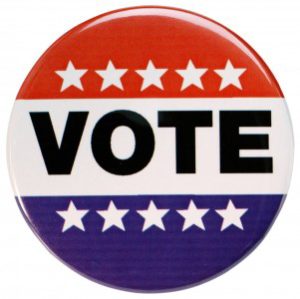On May 10, my wife and I attended a matinee performance of Jesus Christ Superstar at the Lyric Opera in Chicago. Coming a month after the Easter evening (April 1) NBC broadcast of this ground-breaking rock opera by Tim Rice and Andrew Lloyd Webber, it allowed some comparison of how the show is staged and presented, which was summed up by a woman behind us at the Lyric: “Never the same way twice.” Composed in 1970 and first presented on stage in 1971, the show’s lasting impact can, I think, be traced, like any other vintage composition, to its versatility, universality, and the way it probes deep themes in the human experience. In this case, that involves a search for the meaning of divinity and exactly where the Gospel stories fit into that experience. What could it possibly mean to be human and divine at the same time? How did those around Jesus relate to him in real life? Rice and Webber gained fame by packing a lightning bolt of musical interpretation into a two-hour show. Curiously, in the 47 years since the show’s debut in New York, this recent run, which ended May 20, was the first time the Lyric had chosen to stage Jesus Christ Superstar.
Seeing this performed twice in consecutive months prodded me to think a little more deeply about a question that has been roaming around in my brain for a while already. As a Christian, a member of the Evangelical Lutheran Church in America, I have maintained both an intellectual and spiritual curiosity over many years concerning the life of Jesus of Nazareth and the Bible generally. I am anything but a biblical literalist. I feel strongly that the route to some meaningful truth involves a healthy skepticism and a good deal of reading between the lines, so I have little patience with the fixed and sometimes even cartoonish scriptural interpretations that some people cling to. I do not believe that politics and faith are or even should be completely detached, but I am not an ideologue, either. I am a firm supporter of religious freedom and tolerance because I think Christian faith calls on us to be considerably humbler in our relationships with others than some people wearing the label have sometimes been. And that brings me to my topic.
One thing I noted in the Webber-Rice spectacle is that the narrative hews relatively closely to the core of the Gospel stories of the Passion, Christ’s last week of life on Earth—at least within the broad framework of artistic presentation. One question that has dogged Christianity for centuries concerns how Jesus was delivered into the hands of the Romans, which leads to the question of the nature of his startling interaction with Pontius Pilate, the Roman governor of Judea. It is clear enough, according to the Gospel accounts, that Jesus was arrested in the Garden of Gethsemane by agents of the Jewish high priests, and clear enough that they were upset with his preaching because it challenged the established order in profound ways. After interrogation by both the high priests and King Herod, who ruled Galilee under Roman sovereignty, he was turned over to Pilate. The interactions at this point become much more powerful, given the fate that we all now know awaited Jesus. And this is the point that I wish to explore.
I am not a professional biblical scholar, but my perspective here does not depend on being one. It is rooted more in a lifetime of observing the behavior of the powerful, usually at a distance but occasionally up close. It is an analysis of power relationships in personal interactions. I am not sure most biblical scholars are any better at that, and I will certainly not assert that mine is necessarily the most accurate set of observations possible. I hope only to shed light and spur further thinking by those willing to join me in this search for deeper meaning in one of the more remarkable events in human history.
First, I must note that bad or oversimplified interpretation of these events has led to a good deal of bad blood between Jews and Christians over two millennia. Some of this continues, but none of it is appropriate or necessary. Anti-Semitism, like racism, contradicts the fundamental tenets of Christian morality and respect for others. The fact that Jews were involved in the arrest of Jesus does not change the fact that everyone else in the story is also Jewish, except for the Romans. On the eve of Christ’s crucifixion, Jerusalem was a dangerously divided community. Sympathies ran in all directions. Rome had maintained control for years with unrelenting brutality, including many other crucifixions of real and perceived rebels, and challenging Rome was no one’s route to survival. Jewish leadership was understandably concerned with national and institutional survival (deeply intertwined in their world view), and thus wary of the spiritual challenges this unconventional preacher presented. Christ’s message gained a following in this religious and political tinderbox and thus inevitably triggered a reaction by officials concerned about maintaining control. Ultimately, it was the Roman Empire that maintained control, and Rome was never very subtle in its methods. Crucifixion was a form of state-sanctioned terrorism to achieve such control. It was intended to be both demeaning and terrifying.
We should not be surprised. We need merely look around at the actions of dictators and oppressive regimes in our own time to see how this works. Much of the artistic achievement of Jesus Christ Superstar is to take a story from 2,000 years ago and reframe it with modern music and sensibilities that allow us to reassess its relevance in a modern context. That is the job of any good artist with such a story.
And that is precisely what makes the personal interaction between Pilate and Christ so powerfully intriguing. What I would deem naïve interpretations of Pilate’s reaction and response to Jesus have led over centuries to the unfortunate perception that this Roman governor believed Jesus was innocent but was afraid of the crowds that called for his crucifixion. As many scholars have noted, Pilate had already sent numerous others to their deaths by the time he encountered this itinerant preacher. Assigned to maintain control of a difficult province that most Romans viewed as a backwater, Pilate generally had little hesitation about sending to their doom anyone he saw as posing a threat to Roman hegemony, and such movements persisted for decades until the destruction of Jerusalem by Roman troops in 70 C.E. This history is very clear. As for the crowds and Pilate’s offer to free one criminal for the Passover to placate Jewish opinion, it is not hard to believe that a man like Pilate knew how to manipulate such crowds and play vicious mind games with his opponents. The overriding goal for anyone like Pilate was political survival. Just a generation later, in 66 C.E., notes John Dominic Crossan in Jesus: A Revolutionary Biography, the Roman governor Florus sent no fewer than 3,600 of Judea’s leading citizens to crucifixion after mass arrests intended to forestall rebellion, which ultimately led to the Jewish diaspora. Empathy with the oppressed was no more part of the empire’s perspective than it is that of Kim Jong Un in North Korea or Vladimir Putin in Russia. Suppressing and destroying any following of any movement independent of the state is part of the standard playbook for modern totalitarian regimes.
Still, there is this haunting interaction between Pilate and Jesus. We must keep in mind that, in the end, Pilate sent Jesus and two other men to their deaths that day. If he was deeply troubled by his prisoner’s innocence, he could easily have spared him, but at most he went through the empty gesture of washing his hands. It is worth noting the conversation in the Gospel of John, which provides the most detailed report of the exchange between the two men:
Pilate: Are you the king of the Jews?
Jesus: Is that your own idea, of have others suggested it to you?
Pilate: What? Am I a Jew? Your own nation and their chief priests have brought you before me. What have you done?
Jesus: My kingdom does not belong to this world. If it did, my followers would be fighting to save me from arrest by the Jews. My kingly authority comes from elsewhere.
Pilate: You are a king, then?
Jesus: “King” is your word. My task is to bear witness to the truth. For this I was born; for this I came into the world, and all who are not deaf to the truth listen to my voice.
Pilate: What is truth?
Pilate then offers the release of Jesus to the crowd, which demands the release of Barabbas; Pilate then has Jesus flogged, the soldiers place a crown of thorns on his head, and he is mocked and belittled. A further exchange between Pilate and the crowd occurs in which the demand is that he be crucified. It seems obvious to me that Pilate knew how to use the crowd to advance his own ends. Then comes the final exchange:
Pilate: Where have you come from?
Jesus: (No answer.)
Pilate: Do you refuse to speak to me? Surely you know I have the authority to release you, and I have authority to crucify you? (Note that, at this point, Jesus has almost surely been beaten within an inch of his life.)
Jesus: You would have no authority at all over me if it had not been granted you from above; and therefore, the deeper guilt lies with the man who handed me over to you.
What I want to offer at this point is a question that, I think, is often missed or underemphasized in both scholarly accounts and religious interpretations of this powerful dialogue: Why did Pilate take pains to react in this particular manner? Aside from riling up the crowds, why not just sentence Christ and be done with the matter? Surely, Pilate did not take such pains with most prisoners.
But if we take seriously the nature of men like Pilate, we might realize that the horror of the means he would use to eliminate most perceived troublemakers would make most prisoners squirm in terror. He was probably used to, and even enjoyed, making subjects squirm in his presence, the high priests and prominent local citizens included. Absolute power tends to bestow on most human beings a perverse and even sadistic sense of superiority over others.
But at no point in this or any other New Testament accounts does Jesus squirm in the face of political power. He certainly knew what awaited him and was aware of the torture and physical agony involved. Yet here he is, still challenging authority to the point where Pilate may have thought him a madman. Zealots (Jewish rebels of the day) might simply have been defiant in such circumstances, knowing that all was lost once they were captured. They would not have engaged in any philosophical repartee. There is no indication of Jesus seeking mercy or anticipating a way out of his dilemma. Why does this matter?
Because Pilate’s reaction could very well indicate that such a fearless confrontation with his authority, which Jesus even effectively denies, leaves him utterly perplexed. Who does that?
Well, some people do, you may answer, and I suggest this: Jesus’s unflinching insistence on spiritual authority, combined with almost unflappable acceptance of the consequences of his stance, left Pilate temporarily flummoxed, groping for a means to reassert his accustomed sense of psychological dominance over those around him. One does not need even to be Christian to perceive the dynamics of the situation. But it does add some clarity because we know, as Pilate did not, that this nascent religious movement would survive three subsequent centuries of intermittent but vicious Roman persecution. Much of that would occur because of the courage people drew from the story of Christ’s confrontation with Pilate—and, of course, an abiding belief that Pilate did not have the last word.
I will also suggest that the serenity of Jesus in the face of a looming horrific end to his life has become a model that inspired numerous others to challenge unjust power by calling upon a higher morality. These included Martin Luther at the Diet of Worms, who faced potential burning at the stake; Nelson Mandela, who suffered years of imprisonment by the apartheid regime in South Africa; Martin Luther King Jr., who challenged racist violence with peaceful protest and was assassinated; or the Mirabal sisters, who were killed for challenging the Trujillo dictatorship in the Dominican Republic (the subject of a novel by Julia Alvarez). And then, there is the powerful case of Dietrich Bonhoeffer, executed by the Nazis after challenging their authority. One can name many other examples.
However, honesty demands a recognition of other sources of such profound witness. Jews, for example, may point to a line of prophets who preceded Christ, some of whom faced dire crises of faith and provide inspiration. Mohandas Gandhi used pioneering methods of nonviolence to challenge British colonial rule in India, only to die at the hands of a fanatical Hindu assassin. His primary inspirations arose from Eastern traditions, although he seems to have blended what he considered the best of Christian spirituality into his Hindu practice, even as he expressed distaste for many of the barnacles that had attached themselves to organized religion. But he clearly faced persecution with an equanimity that put his adversaries to shame.
Of course, like all of us, each of these heroic figures had their human shortcomings. But in each case, their serene courage drew inspiration from a deep well of faith. That faith includes a resolute refusal to cede moral authority while acknowledging political authority. It includes the integrity of one’s belief system with a focus on love, mercy, and peace. And it always includes a recognition of the power of one’s conscience, but that conscience must be driven not just by passion, but by compassion, a clear recognition of the value of others. True conscience involves not just a personal set of beliefs but clarity about one’s moral commitments and their potential consequences, and the acceptance of those consequences. That anyone meets that test is a testament to the capacity of the human spirit to unite itself with divine wisdom. How that occurs is a story I will leave to saintlier souls than mine to tell.
Jim Schwab
Author’s note: The lack of images in this post is deliberate in order to maintain a focus on the ideas presented.






